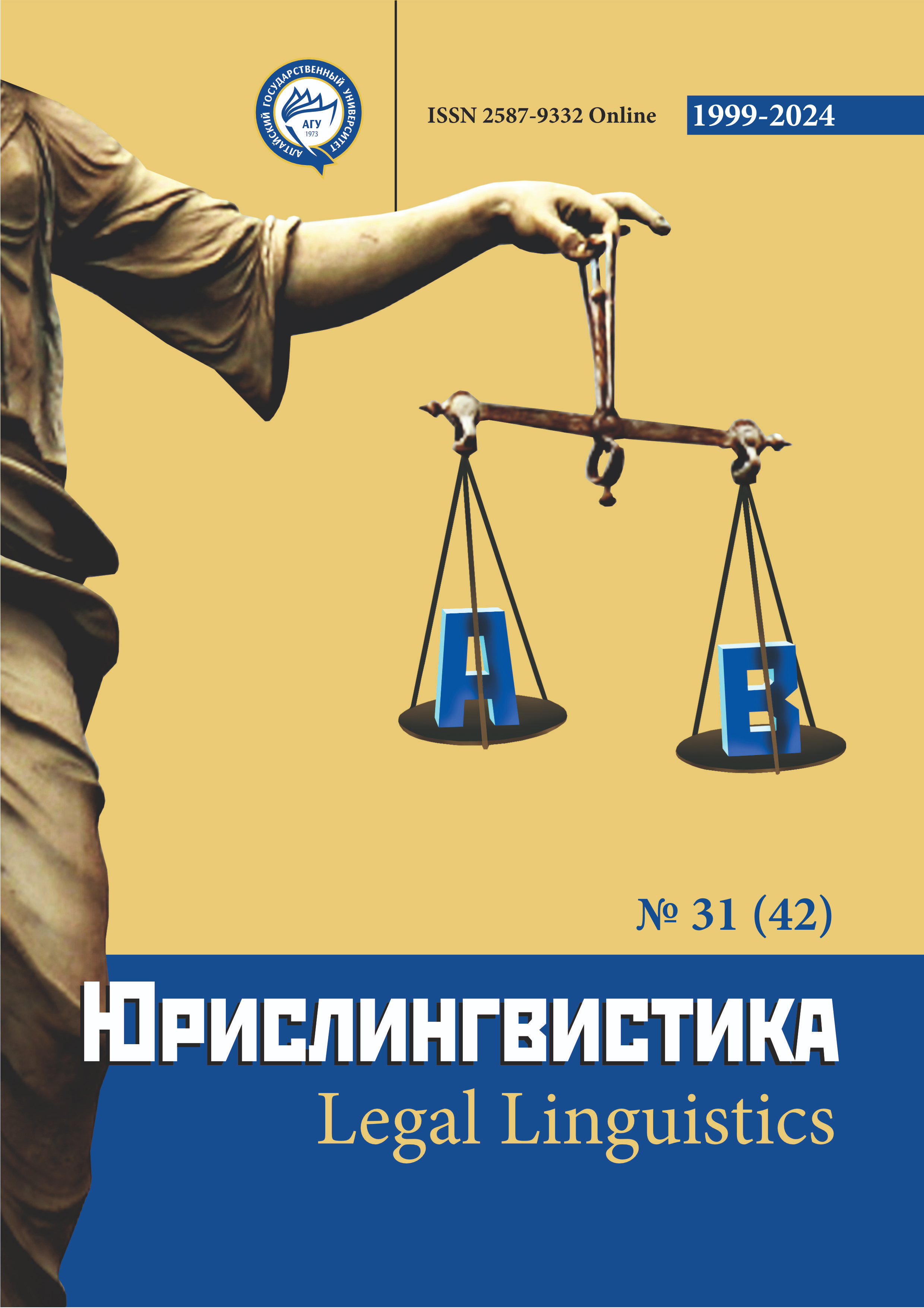Features of the Meaning of the Term «Testament» in Judicial Discourse
УДК 340.132.6, ББК 67.0
Abstract
The article specifies that the orderly nature of legally significant acts is of particular importance in the process of hereditary succession. This makes it possible to draw semantic parallels between the legal term «testament» and the term «plan», taken in the meaning of the order of measures, the implementation of which requires a number of pre-considered actions united by a common goal. The use of the term «testament» seems to be correct to refer to the planning by the testator of the disposal of property in the event of his own death. An indication of the nature and procedure of actions of certain persons in the future brings the words «testament» and «plan» closer in meaning. Examples taken from judicial acts show that the term «testament» additionally has denotative components of meaning that function in speech acts within the framework of judicial discourse. The context of judicial discourse introduces semantic increments that allow using the legal term «testament» to denote a plan for the implementation of hereditary orders.
Downloads
Metrics
References
Апелляционное постановление Верховного Суда Республики Саха (Якутия) от 26 июня 2020 № 22-1034 URL: https://lawnotes.ru/podborki-gk-rf/reshenie-suda-dolzhno-byt-ponyatnym
Боруленков Ю. П. Дискурс как метод юридического познания и доказывания. Часть 2. Нарративная природа судебного дискурса / Мировой судья. – 2013. – № 12. – С. 18–23.
Виноградов В. В. Язык Пушкина: Пушкин и история русского литературного языка. М., 1935.
Ворожевич А. С., Гентовт О. И., Козлова Н. В. и др. Физические лица как субъекты российского гражданского права: монография. М., 2022.
Очеретько Е. А. Наследование по завещанию: учебное пособие. Елец, 2022.
Пестов М. М. Causa Curiana как пример влияния риторики на толкование завещаний в римском праве / Вестник гражданского права. – 2022. – Т. 22. – № 3. – С. 66-102.
Постановление Правительства РФ от 27.05.2002 № 351 «Об утверждении Правил совершения завещательных распоряжений правами на денежные средства в банках» / СПС КонсультантПлюс.
Решение Бийского городского суда Алтайского края от 14 сентября 2020 г. по делу № 2-293/2020 URL: http://sudact.ru/
Решение Вологодского городского суда от 27 июля 2020 г. по делу № 2-3313/2020 URL: http://sudact.ru/
Решение Кировского районного руда города Астрахани от 9 сентября 2020 года № 2-1941/20 URL: https://lawnotes.ru/podborki-gk-rf/reshenie-suda-dolzhno-byt-ponyatnym
Решение Котельнического районного суда Кировской области от 4 октября 2022 года № 2-704/2022 URL: https://lawnotes.ru/podborki-gk-rf/reshenie-suda-dolzhno-byt-ponyatnym
Решение Кузьминского районного суда города Москвы от 19 февраля 2013 года № 2-126/13 URL: https://lawnotes.ru/podborki-gk-rf/reshenie-suda-dolzhno-byt-ponyatnym
Решение Партизанского городского суда Приморского края от 12 ноября 2020 г. по делу № 2-1079/2020 URL: http://sudact.ru/
Римское частное право : учебник. М., 2014.
Строкова О. Г. Понятие завещания и необходимые основания ограничения принципа его свободы / Вестник Саратовской государственной юридической академии. – 2013. – № 5 (94). – С. 105.
Толковый словарь русского языка / Под ред. Д. В. Дмитриева. М., 2003. URL: https://dic.academic.ru/
Толковый словарь русского языка / Под ред. Д. Н. Ушакова. М., 1935–1940. URL: https://dic.academic.ru/
Copyright (c) 2024 Константин Салтыков

This work is licensed under a Creative Commons Attribution 4.0 International License.
The authors, which are published in this journal, agree to the following conditions:
1. Authors retain the copyright to the work and transfer to the journal the right of the first publication along with the work, at the same time licensing it under the terms of the Creative Commons Attribution License, which allows others to distribute this work with the obligatory indication of the authorship of this work and a link to the original publication in this journal .
2. The authors retain the right to enter into separate, additional contractual agreements for the non-exclusive distribution of the version of the work published by this journal (for example, to place it in the university depository or to publish it in a book), with reference to the original publication in this journal.
3. Authors are allowed to post their work on the Internet (for example, in a university repository or on their personal website) before and during the review process of this journal, as this may lead to a productive discussion, as well as more links to this published work (See The Effect of Open Access).











